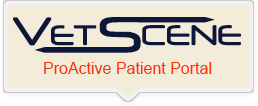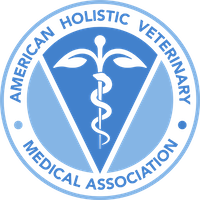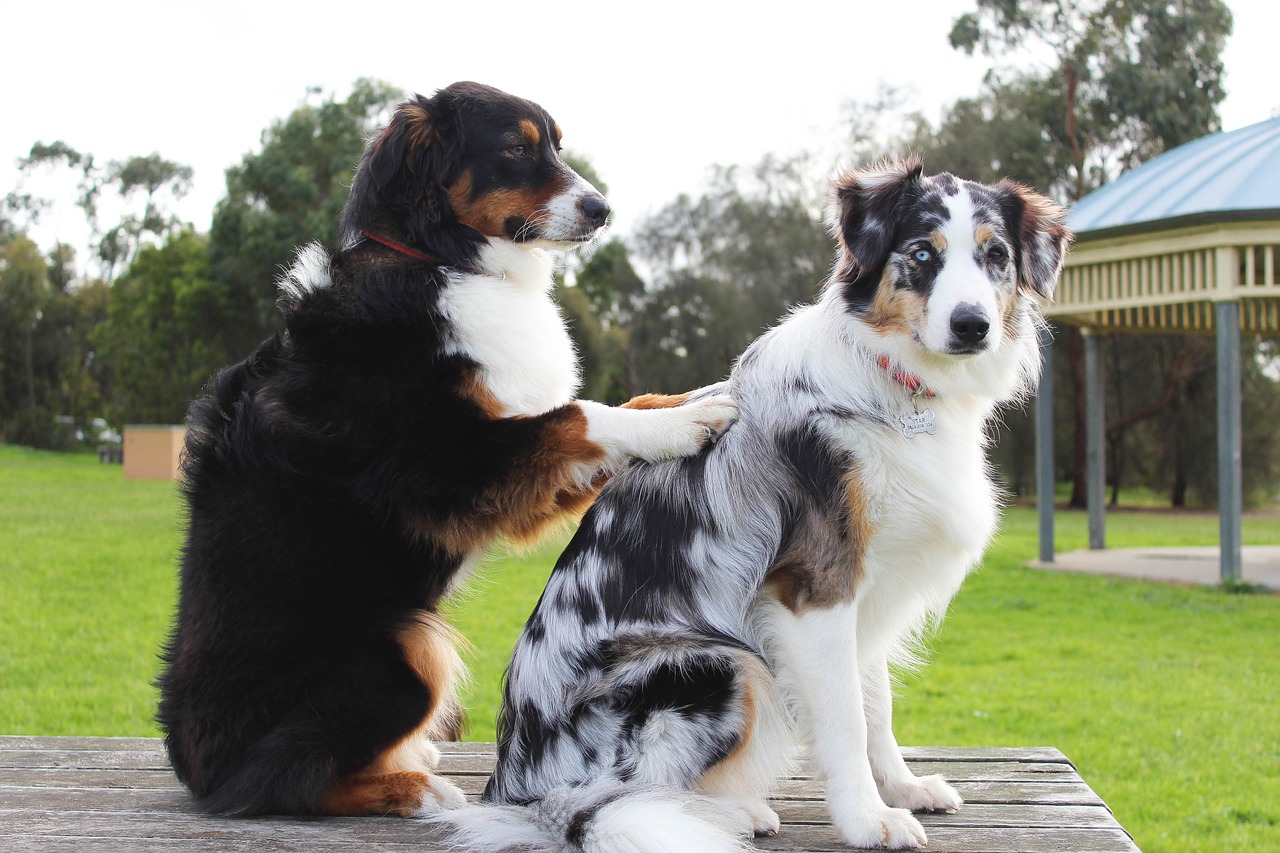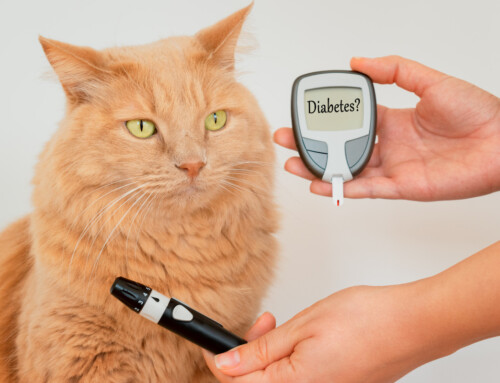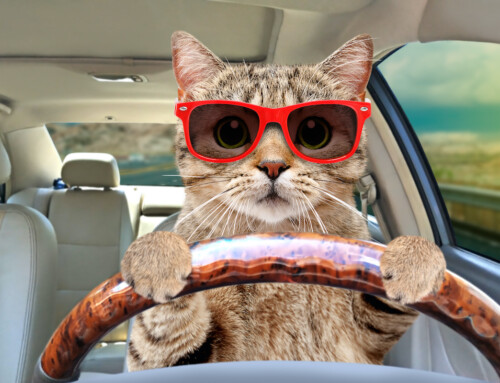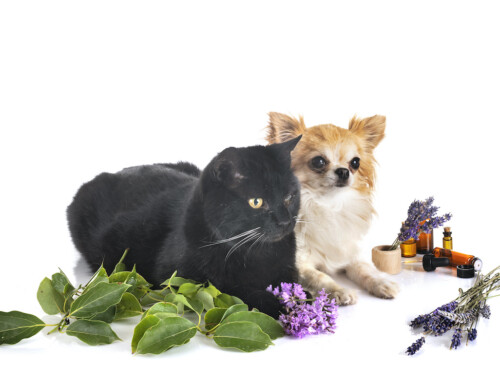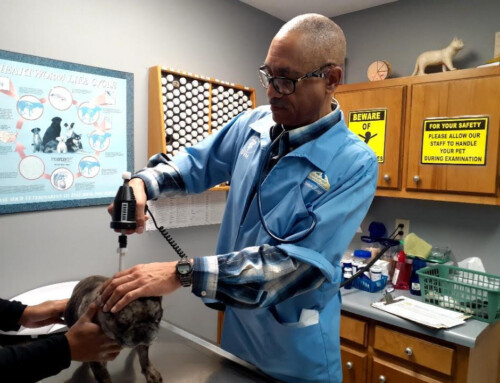Pet owners who opt for a holistic veterinarian do so for many of the same reasons people choose a holistic doctor for human healthcare: Holistic veterinary medicine goes beyond treating symptoms to identify and correct the underlying imbalance that caused an illness. Knowing what veterinary holistic medical care looks like in practice can help you decide if this approach to your pet’s healthcare is a good fit.
What is Holistic Veterinary Medicine?
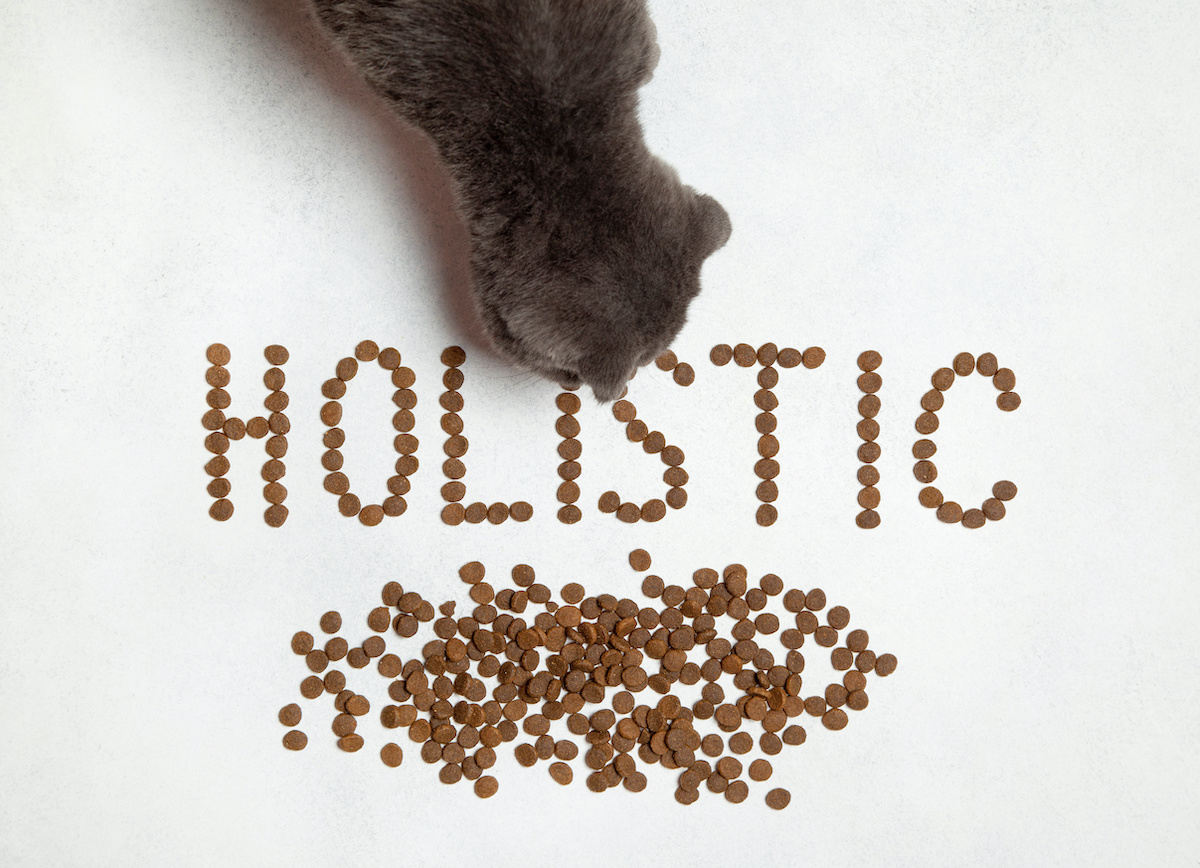 Holistic veterinary medicine (HVM) aims to identify and treat the root cause of illness, not just alleviate symptoms. Holistic veterinarians promote healing utilizing the least invasive, most natural medical treatments alongside techniques that support pet behavioral and emotional wellbeing. A holistic vet also may use conventional medical therapies; so, you may see their practice described as integrative animal medical care.
Holistic veterinary medicine (HVM) aims to identify and treat the root cause of illness, not just alleviate symptoms. Holistic veterinarians promote healing utilizing the least invasive, most natural medical treatments alongside techniques that support pet behavioral and emotional wellbeing. A holistic vet also may use conventional medical therapies; so, you may see their practice described as integrative animal medical care.
What Treatment Techniques do Holistic Vets Use?
 The techniques used in HVM are gentle, minimally invasive, and incorporate educating the pet owner. Techniques can vary widely among holistic veterinarians, depending on training, specialization, and other factors.
The techniques used in HVM are gentle, minimally invasive, and incorporate educating the pet owner. Techniques can vary widely among holistic veterinarians, depending on training, specialization, and other factors.
- Acupuncture, Acupressure
- Aromatherapy
- Behavioral Interventions
- Chiropractic Treatment
- Food Intolerance Testing
- Dietary Interventions
- Environmental Interventions
- Nutritional Testing
- >Nutritional Supplements
- Homeopathy
- Veterinary Orthopedic Manipulation
- Class IV Cold Laser Therapy
- Massage Therapy
- Stress management for the pet / pet owner
Keep in mind, not every holistic vet is the same; you’ll find that the treatment options vary greatly among practitioners.
What’s the Difference between Conventional and Holistic Veterinarians?
 All veterinarians hold certain educational achievements in common:
All veterinarians hold certain educational achievements in common:
- Completion of a four year college degree (usually in a science such as biology)
- Completion of a veterinary medical school
- Passing a state licensure exam
- Most veterinarians complete post-doctoral training for specialization
 Holistic veterinarians will take additional courses with hands-on training. They must successfully complete a certifying exam to refer to themselves as a holistic vet.
Holistic veterinarians will take additional courses with hands-on training. They must successfully complete a certifying exam to refer to themselves as a holistic vet.
Many holistic doctors begin their careers in conventional veterinary medicine. Like medical doctors for people, veterinarians will either be general practitioners who provide routine health exams and treat common illnesses such as kennel cough. Others will have pursued specialization in treating certain medical conditions or using certain procedures. Along the way, the veterinarian may have experienced the benefits of holistic medicine for themselves or become curious about how holistic therapies could benefit animals. Thus, begins the journey through coursework and training and certification in holistic medicine for pets.
The key difference between holistic and conventional veterinarians lies in the philosophy of practice and the tools used in treatment.
Philosophy of Practice: Conventional Veterinarian
The conventional veterinarian identifies symptoms of disease and asks, “how do I make these symptoms go away so the pet can be more comfortable?” Then, the doctor dispenses medicines or other treatments to manage the symptoms. If there are no symptoms, the general belief is then there is no disease.

Philosophy of Practice: Holistic Veterinarian
The holistic veterinarian identifies symptoms of disease and asks, “why is this pet having these symptoms, in this organ system, at this time?”
The WHY is a crucial difference. Like a medical detective, the holistic vet wants to uncover the root cause of the disease process, not just get rid of symptoms. They will address symptoms, but they do not stop when symptoms disappear. If the root cause is not addressed, then symptoms may return in the same organ system or in a different body system. Holistic veterinarians will use the most efficacious, safe and affordable path to curing the pet’s ailing health at the source. Only when the true cause of the ailment is found is there a possibility for lasting recovery and optimal health and wellbeing for the pet.
At MainStreet Veterinarians of Stone Mountain, our vets are truly integrative practitioners, combining the safe and efficacious treatments for many types of pets.
The Detective Work of a Holistic Veterinarian
 For the holistic vet, the whole picture of the patient is part of the process of discovering why the pet is ill. They will assess factors such as …
For the holistic vet, the whole picture of the patient is part of the process of discovering why the pet is ill. They will assess factors such as …
- history of the illness, from before symptoms started to the present
- the disease pattern (how have symptoms changed over time)
- the animals daily routine, including physical activity
- fecal samples and blood work
- a pet’s diet and fluid intake
- he pet’s living environment
- the relationship with the pet owner and other animals
Many other considerations, including lab tests, will go into creating a treatment protocol.
Can a Holistic Vet Treat Acute or Emergency Health Problems?
 Even seemingly straightforward acute injuries such as a wound or a sprain may require a surgical procedure (removing a thorn from a paw is considered surgery) and drug treatment. In the initial response to an acute injury, the veterinarian will rely on her or his conventional medical training to manage pain, remove debris, control bleeding, suture wounds, and stabilize joints. Along with these Western medical approaches, the holistic vet may opt for a natural therapy over a drug or other complementary medical techniques. So, yes, a holistic vet can treat acute health problems.
Even seemingly straightforward acute injuries such as a wound or a sprain may require a surgical procedure (removing a thorn from a paw is considered surgery) and drug treatment. In the initial response to an acute injury, the veterinarian will rely on her or his conventional medical training to manage pain, remove debris, control bleeding, suture wounds, and stabilize joints. Along with these Western medical approaches, the holistic vet may opt for a natural therapy over a drug or other complementary medical techniques. So, yes, a holistic vet can treat acute health problems.
As for an emergency health problem, a holistic vet can evaluate and recommend appropriate next steps for treatment, but often will not be the primary provider of emergency medicine. As with people, pet emergency medicine is a specialization that requires additional years of education and training. Proper emergency medical attention can make the difference between saving your pet’s life or saying good-bye to your pet.
 If your conventional veterinarian does not practice holistic medicine, you may want to consult with a holistic veterinarian for specific complementary treatment options, but not as a replacement for your pet’s routine healthcare and emergency treatment. Holistic medicine alone cannot replace vaccinations and other forms of conventional veterinary medicine. HVM may provide adjunctive therapies for pets who are not responding to conventional treatment or who aren’t tolerating medication. Every pet and every situation is different, but science-backed treatment options –conventional and holistic–are always the best approach.
If your conventional veterinarian does not practice holistic medicine, you may want to consult with a holistic veterinarian for specific complementary treatment options, but not as a replacement for your pet’s routine healthcare and emergency treatment. Holistic medicine alone cannot replace vaccinations and other forms of conventional veterinary medicine. HVM may provide adjunctive therapies for pets who are not responding to conventional treatment or who aren’t tolerating medication. Every pet and every situation is different, but science-backed treatment options –conventional and holistic–are always the best approach.
Stone Mountain’s Beloved Holistic Veterinarian
 MainStreet Veterinarians of Stone Mountain practices both conventional and holistic healthcare for animals. Because of this integrative approach, many animals that were not thriving through conventional treatment methods have now been brought back to optimal health. Our caring veterinary team members provide conventional medical, surgical, boarding, grooming and retail services. Our holistic medical treatments include Veterinary Orthopedic Manipulation (pet chiropractic), and Nutrition Response Testing (NRT). We also carry a variety of holistic food and nutritional supplements to address an animal’s whole health.
MainStreet Veterinarians of Stone Mountain practices both conventional and holistic healthcare for animals. Because of this integrative approach, many animals that were not thriving through conventional treatment methods have now been brought back to optimal health. Our caring veterinary team members provide conventional medical, surgical, boarding, grooming and retail services. Our holistic medical treatments include Veterinary Orthopedic Manipulation (pet chiropractic), and Nutrition Response Testing (NRT). We also carry a variety of holistic food and nutritional supplements to address an animal’s whole health.
When it comes to truly integrative healthcare attention for your beloved pet, look no further than MainStreet Veterinarians. Dr. Moorehead is currently only one of two veterinarians in the Southeast United States to be trained to utilize this healing technology at its highest level.
We invite you to call us today at 770-498-4620 to schedule an appointment for your pets’ first truly integrative wellness check. Don’t forget to take advantage of our monthly specials for new and existing clients. If you have any questions about holistic or integrative veterinary medicine, please send us an email and we will get back to you promptly.
Resources

